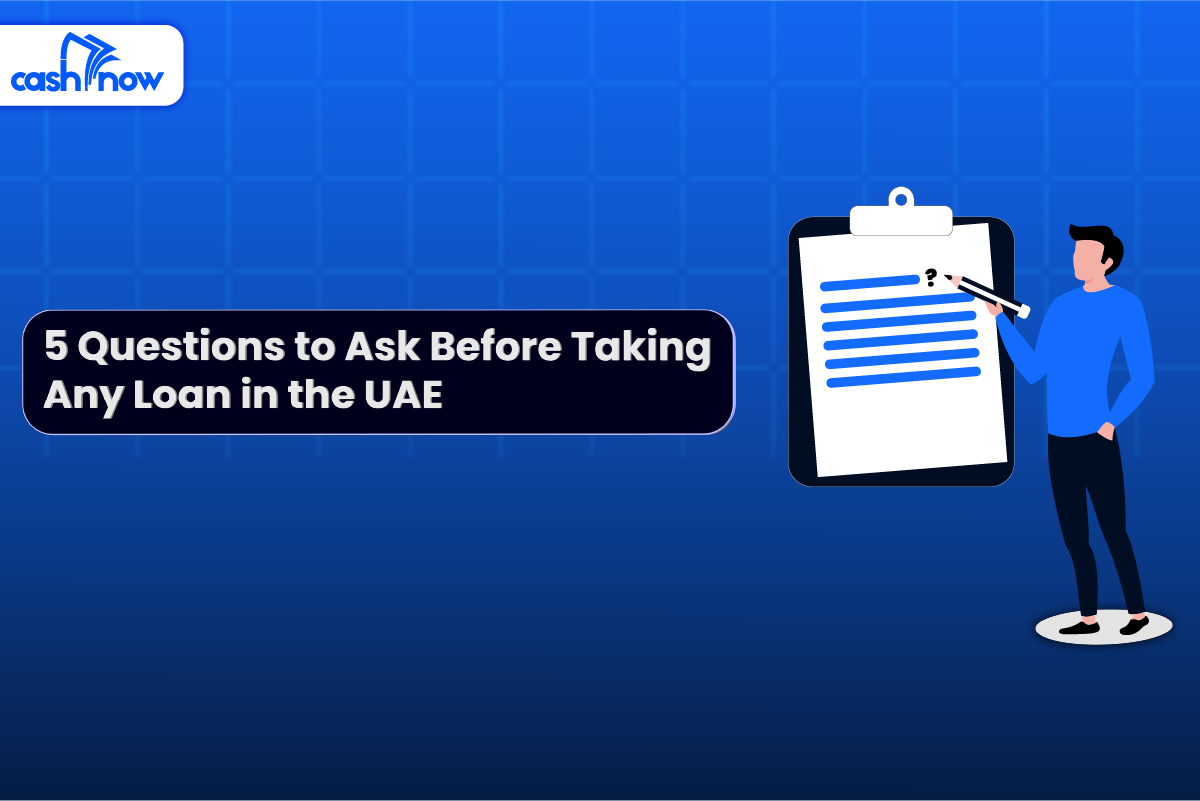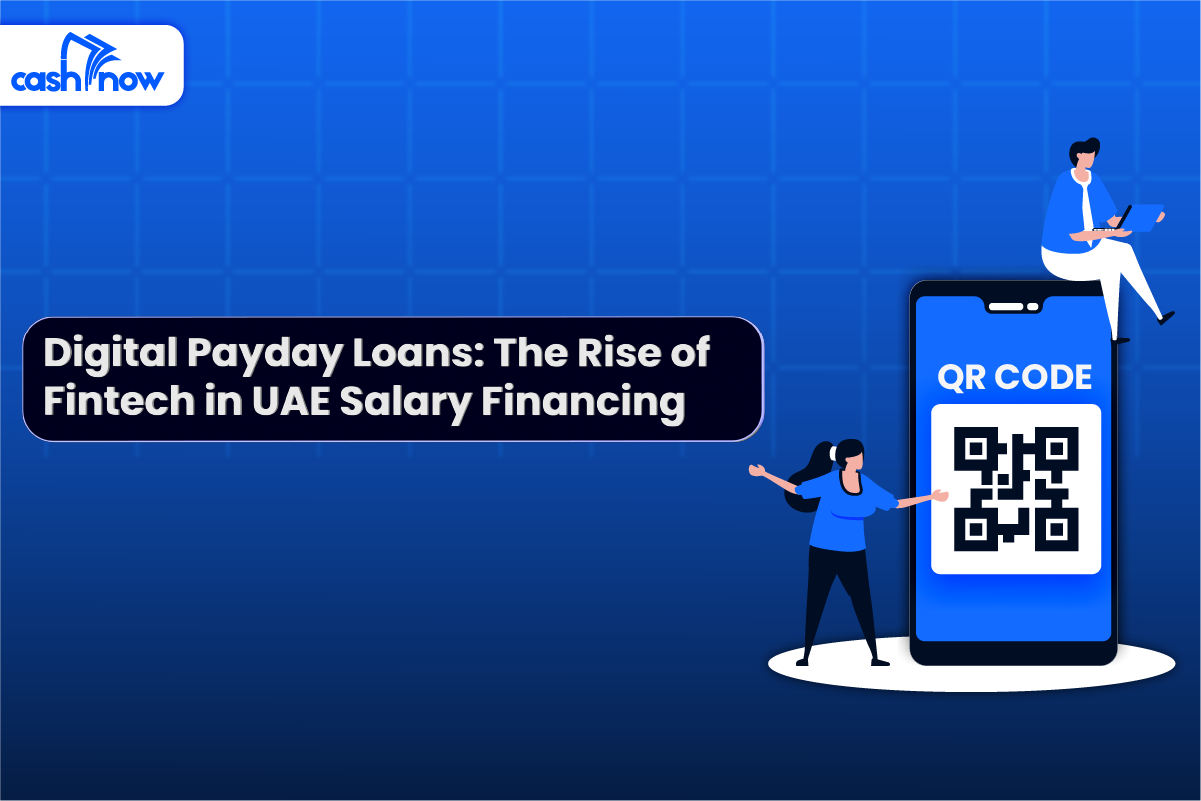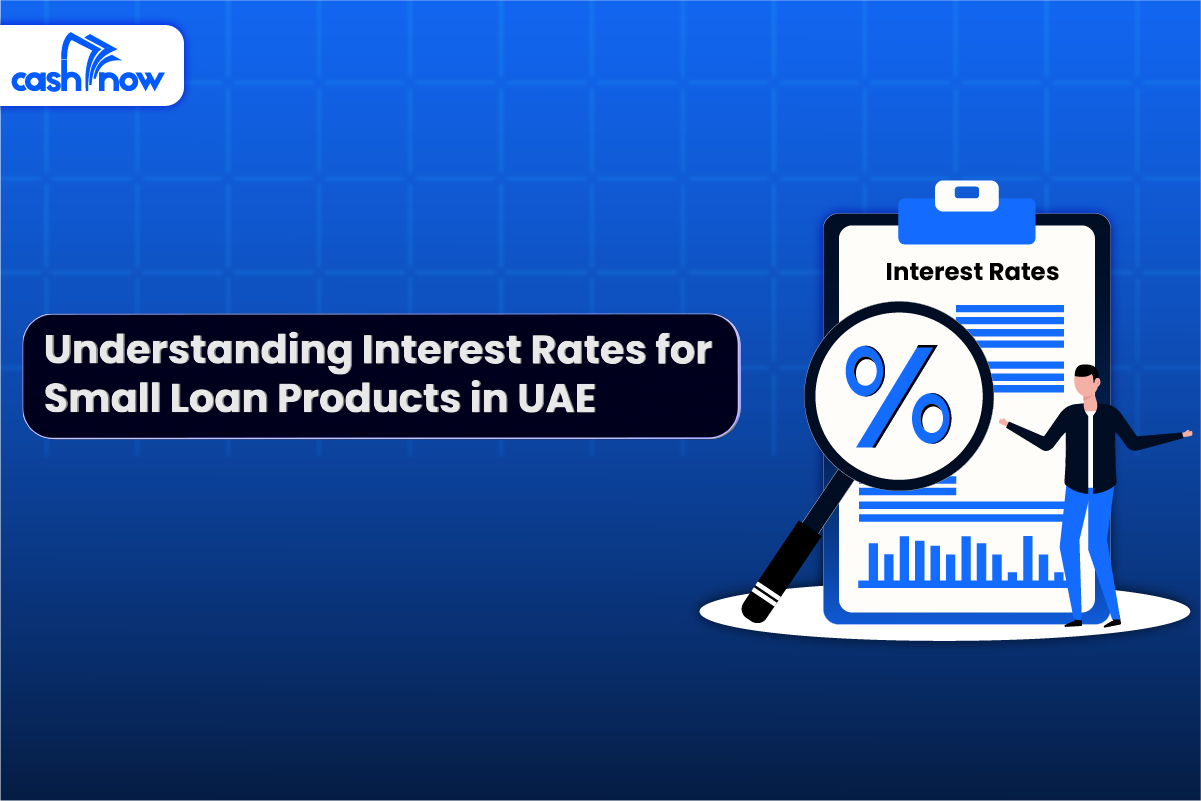A Beginner’s Guide to Personal Loans in the UAE

Personal loans are the default option for people looking for quick and flexible financial support.
They’ve quietly become one of the most common ways UAE residents handle life’s big (and sometimes urgent) expenses.
Expats use personal loans to fulfil their dual responsibilities, while UAE residents opt for personal loans to keep up with the rising cost of living in the UAE. Either way, their fast approvals, income-based limits, and minimal paperwork features make them the go-to source for borrowing funds.
But there are a lot of nuances you need to know before getting a personal loan in the UAE, especially if you are new to the world of borrowing.
This guide answers all your burning questions about personal loans, helping you understand what to expect and ensuring you make the right decisions.
What is a personal loan and how does it work?
A personal loan is an unsecured loan granted without collateral, say property or investments. People can borrow a sum of money (often dependent upon eligibility criteria) from banks or financial institutions with a promise to repay along with interest, periodically, within an agreed timeframe. The loan amount, interest rate, and repayment term are determined at the time of approval.
Personal loans aren’t like credit cards, where you carry a balance and pay a minimum repayment each month. They’re fixed-term loans with set monthly repayments. Unlike car loans, which are tied to one purpose, personal loans can be used for almost anything, short-term needs or long-term goals.
Who can get a personal loan in the UAE?
Personal loans come with a good deal of flexibility, but the exact terms depend on the lender, duration of the loan, and the loan amount. Banks and financial institutions across the UAE offer personal loans, each with its own set of eligibility criteria and conditions, which can differ for UAE nationals and expats
Personal loans are generally available for salaried employees, but that’s starting to change. New-age FinTech lenders are making borrowing more accessible by extending personal loans to self-employed individuals as well, with a slight difference in requirements, think alternative income proofs instead of salary slips.
While requirements may vary between lenders, some of the most common criteria to qualify for a personal loan in the UAE include:
- 21 years of age
- A minimum monthly salary between AED 3,000 and AED 5,000
- A valid Emirates ID
- Other supporting documents like bank statements, residency visa, salary certificate, etc
Some banks may need you to transfer your salary to them as part of the loan agreement, while others offer non-salary transfer options with higher interest rates.
If you're self-employed, banks may ask for additional documents like trade licenses and audited financial statements. For salaried applicants, a salary certificate and recent bank statements are usually enough to get started.
What can you use a personal loan for?
Personal loans are incredibly flexible. Most lenders won’t even ask why you’re borrowing. You’re free to use the funds for nearly any personal expense. That said, understanding the most common reasons people take personal loans can help you decide when it makes sense to you.
For instance, should you buy a car using a personal loan, or would a dedicated vehicle loan be a better fit? Knowing the usual use cases gives you a clearer sense of when a personal loan is the right option.
Here are the common reasons why people take a personal loan in the UAE:
- Education expenses for self or children
- Weddings
- Travel, including emergency trips back home or vacations
- Medical emergencies and unexpected bills
- Debt consolidation, where multiple debts are combined into a single monthly payment
The most critical factor to take into consideration is the interest amount. Do your homework to assess if the cost of borrowing is worth the value you’re getting.
How to apply for a personal loan in the UAE
Applying for a personal loan in the UAE isn’t as scary as it might sound. The process becomes smoother if you are aware and know what to expect. Be it FinTech with a digital-only process or a physical bank assistant loan from a branch, the process is almost standard.
Here’s how the typical process pans out:
Compare loan offers
Opting for the first loan offer you come across isn’t really a smart move. Shop around, inquire about different banks and lenders to be well aware of your options, because the interest rate, fees, and eligibility requirements are never the same.
If you need a head start, there are multiple online comparison tools and aggregator websites that you can use to compare lenders side-by-side. This step is critical if you want to save a good chunk of your money.
Check your eligibility
Age, monthly income, and residency status are almost non-negotiable to qualify for personal loans. Make sure you tick these basic boxes before even considering getting a personal loan. Expats will also need to provide a passport and residency visa, and some banks may ask for a salary transfer to their account.
Gather your documents
Personal loans are known for their ease in application, which means they do not need as many documents as a traditional loan, like a mortgage loan. Here are the essential papers you might want to gather before heading up to apply for the loan:
- Emirates ID
- Salary certificate from your employer
- Bank statements for the last 3-6 months
- Passport and visa (if you’re an expat)
- Trade license and proof of income (if you’re self-employed)
Apply online or visit a branch
Banks now let you apply for and avail of a personal loan via their mobile app or website. In case speaking to an agent makes you feel at ease, you can always visit your chosen bank’s branch and kickstart the loan process.
FinTechs are digital only, which means you can only apply for a personal loan with them online. FinTech platforms like Cashnow also offer pre-approved or instant microloans that can help you obtain funds in minutes or hours.
Wait for approval and disbursement
Once you’ve submitted your application and documents, it’s time to sit tight. The lender will review everything, check your credit score, and verify your eligibility. If all goes well, your loan will be approved, and the funds will be disbursed within the time frame mentioned during the application. Depending on the lender, this can take anywhere from 24 hours to a few working days.
Tips to choose the right personal loan
Here are some smart checks you can do to find the loan option that works best for you:
Don’t just look at the interest rate
Finding and choosing the lowest interest rate is a rookie mistake first-time borrowers make. Not all interest rates are the same, some lenders quote a flat rate that’s fixed on the original amount, while others offer reducing rates, where the interest rate goes down with your repayment amount.
So, while a reduced rate might look expensive initially, it is often cheaper in the long run. The best call is to ask for the total repayment amount from the lenders, alongside the interest rate.
Watch out for hidden charges
Interest rate is not the only charge for getting a personal loan. There are processing fees (usually 1-2% of the loan), loan insurance, and early settlement or cancellation charges. All these charges combined can make a big difference, so ask your lenders for a detailed breakdown of the fee structure.
For your ease, FinTechs like Cashnow follow utmost transparency to give you a sneak peek into their pricing structure, no strings attached. You have 100% visibility on all charges upfront. You will know exactly what you are paying for, even before you commit.
Choose the right loan tenure
Your loan tenure dictates how much EMI and total interest you’ll pay. A longer tenure spreads out your EMIs, making it lighter on your pocket each month, but it also means more interest over time, and vice versa. Find a balance between affordability and total cost.
Make sure the EMI fits your income
A golden rule is, EMIs should not exceed 30-40% of the monthly salary because higher debt makes it difficult to manage other expenses or save. Use an EMI calculator (most lenders offer one online) to test different scenarios and see what’s realistic for your budget.
If you choose Cashnow as your personal loan partner, you will have everything you need to do your due diligence. All charges are clearly disclosed upfront, empowering you to make informed financial decisions and manage your debt with confidence.
Check the lender’s reputation and service quality
Beyond ensuring you are getting a good deal, you must also ensure you are borrowing from credible lenders. Check out the lender's reputation, transparency in policies, and responsive customer service. Additional features like digital loan tracking, flexible repayment, or loan top-up options are a plus.
Platforms like Cashnow are built with user experience in mind, like seamless service, clear communication, and digital features like real-time loan tracking and flexible repayment options, which make borrowing easier, especially for first-time borrowers.
Understand your reason for borrowing
Personal loans are unsecured, so they often come with higher interest rates than secured loans like auto or home loans. So, if you’re buying a car, a vehicle loan might be a better and cheaper option. Be clear on your reason, and borrow only what you truly need.
Conclusion
Personal loans can be your perfect financial aid for planned or unexpected expenses, especially when you know how they work and what to look out for.
Cashnow is a beginner-friendly FinTech platform that simplifies lending in the UAE. With a smooth mobile experience, fast approvals, and minimal paperwork, Cashnow makes borrowing accessible for both salaried and self-employed individuals.




.webp)
.webp)



